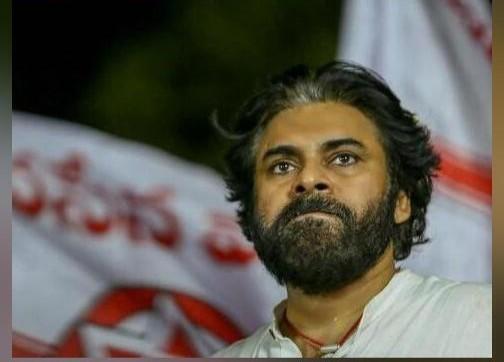
Like PM, Kalyan Switches to English While Speaking on J&K Attack
In a drastic shift from his usual Telugu language, Andhra Pradesh Deputy Chief Minister Pawan Kalyan suddenly switched to English during a speech to condemn the recent terror attack in Jammu and Kashmir’s Pahalgam. This surprising move has sparked curiosity among many, who are wondering what prompted the leader to switch languages mid-speech.
Pawan Kalyan’s unexpected switch to English was reminiscent of Prime Minister Narendra Modi’s earlier move, where he shifted from Hindi to English to deliver a strong message against terrorism in the aftermath of the Pahalgam attack.
The Pahalgam attack, which took place on September 10, 2022, left several tourists and locals injured. The incident has sent shockwaves across the country, with many leaders and citizens expressing their outrage and condolences.
As Kalyan began his speech, he initially spoke in Telugu, condemning the attack and expressing his condolences to the families of the victims. However, mid-sentence, he suddenly switched to English, saying, “The attack has been one of the darkest days in entire country.” His sudden shift to English has left many wondering what prompted this unexpected move.
While it is unclear what specifically prompted Kalyan to switch languages, some analysts have speculated that it may have been a deliberate attempt to send a strong message to the international community. By switching to English, Kalyan may have been trying to convey that the attack was not just a domestic issue, but a global concern that requires international attention and cooperation.
This move is also reminiscent of Prime Minister Modi’s earlier response to the Pahalgam attack, where he switched from Hindi to English to deliver a strong message against terrorism. Modi’s move was seen as a deliberate attempt to send a message to the international community that India would not be cowed by terrorism and would continue to fight against it with all its might.
In recent years, language has become an important tool in the political arsenal of many leaders. By switching to English, leaders can reach a broader audience, convey a stronger message, and demonstrate their ability to adapt to changing circumstances.
While Kalyan’s sudden switch to English may have been a surprise to many, it is clear that language is no longer a barrier in modern politics. Leaders are increasingly using language as a tool to convey their message, adapt to changing circumstances, and connect with a broader audience.
As the world continues to evolve, it is likely that language will play an increasingly important role in politics. Whether it is switching to English, Hindi, or any other language, leaders will continue to use language as a tool to convey their message and connect with their audience.
Source: https://youtu.be/hl6_hZOnkFA






